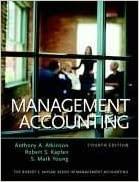Question
Pure Cane Sugar Company manufactures three products (white sugar, brown sugar, and powdered sugar) in a continuous production process. Senior management has asked the controller
-
Pure Cane Sugar Company manufactures three products (white sugar, brown sugar, and powdered sugar) in a continuous production process. Senior management has asked the controller to conduct an activity-based costing study. The controller identified the amount of factory overhead required by the critical activities of the organization as follows:
Activity Activity Costs Production $247,500 Setup 48,000 Inspection 12,500 Shipping 69,300 Customer service 27,600 Total $404,900 The activity bases identified for each activity are as follows:
Activity Activity Base Production Machine hours Setup Number of setups Inspection Number of inspections Shipping Number of customer orders Customer service Number of customer service requests The activity-base usage quantities and units produced for the three products were determined from corporate records as follows:
Machine Hours Number of Setups Number of Inspections Number of Customer Orders Number of Customer Service Requests Units White sugar 2,000 50 100 410 25 8,000 Brown sugar 1,250 70 160 1,100 200 5,000 Powdered sugar 1,250 80 240 800 120 5,000 Total 4,500 200 500 2,310 345 18,000 Each product requires 0.25 machine hour per unit.
Required:
1. Determine the activity rate for each activity.
Activity Rate Production $fill in the blank 1 /mh Setup $fill in the blank 2 /setup Inspection $fill in the blank 3 /insp. Shipping $fill in the blank 4 /cust. ord. Customer Service $fill in the blank 5 /req. 2. Determine the total and per-unit activity costs for all three products. Round "Activity cost per unit" answers to two decimal places.
White Sugar Brown Sugar Powdered Sugar Total activity cost $fill in the blank 6 $fill in the blank 7 $fill in the blank 8 Activity cost per unit $fill in the blank 9 $fill in the blank 10 $fill in the blank 11 3. Why arent the activity unit costs equal across all three products since they require the same machine time per unit?
The unit costs are different even though each product requires 0.25 machine hour because the products have different profit ratios.The unit costs are different even though each product requires 0.25 machine hour because the products consume many activities in ratios different from the volume.The unit costs are different even though each product requires 0.25 machine hour because the selling price of the products are different and the machine hour rate is different.
Step by Step Solution
There are 3 Steps involved in it
Step: 1

Get Instant Access to Expert-Tailored Solutions
See step-by-step solutions with expert insights and AI powered tools for academic success
Step: 2

Step: 3

Ace Your Homework with AI
Get the answers you need in no time with our AI-driven, step-by-step assistance
Get Started


